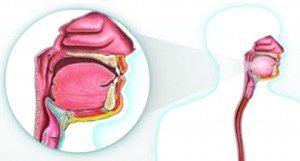By Dr Manuel Bustamante


Causes of Barrett’s esophagus
When you eat, food passes from your throat to your stomach through the esophagus (also called the food pipe or swallowing tube). Once food is in the stomach, a ring of muscles keeps it from leaking backward into the esophagus.
If these muscles do not close tightly, stomach acid can leak back into the esophagus. This is called reflux or gastroesophageal reflux.
Reflux may cause symptoms of heartburn. It may also damage the lining of the esophagus. The esophagus lining then changes in appearance and looks like the stomach lining (Barrett’s esophagus).
Barrett’s esophagus occurs more often in men than women. You are more likely to have this condition if you have had GERD for a long time.
Patients with Barrett’s esophagus may develop more changes in the esophagus called dysplasia. When dysplasia is present, the risk of getting cancer of the esophagus increases.
Symptoms of Barrett’s esophagus
Individuals with Barrett’s esophagus may not have any symptoms. However, most patients diagnosed with Barrett’s esophagus have a history of longstanding gastro-esophageal reflux disease (GERD).
Typical symptoms of GERD include:
• Heartburn – a burning sensation in the chest
• Increased by bending, stooping, lying down, or eating
• More likely or increased at night
• Relieved by antacids
• Regurgitation – sensation of food or gastric acid backing up into the esophagus or throat
• Nausea after eating
• Dysphagia – difficulty swallowing (Note: this symptom requires immediate medical attention)
Diagnosing Barrett’s Esophagus
Barrett’s esophagus can be easily diagnosed by routine upper endoscopy and confirmed on biopsy. More challenging, however, is the detection of precancerous and cancerous change in Barrett’s esophagus. It is best to use advanced imaging technology to detect dysplasia and cancerous changes at the very earliest stage when treatment is most effective.
Dr Meckstroth recommends that, “ In order to properly detect the precancerous and cancerous change, advanced imaging technology should be used.” Optical Zoom and high-resolution endoscopy, like those used at Premier Endoscopy Center, with High Definition Endoscopes equipped with microchips that generate high-resolution images with optical magnification greatly enhance the tissue architecture and vascular pattern. This technology is available in only a few centers in the world.
New Barrett’s Esophagus Treatment Now Available
An effective and safe technology for treating Barrett’s esophagus, including long segment BE and areas with dysplasia, has been added to our list of endoscopic procedures, as a FDA approved technique, and is available to our patients at this time.
The BARRX RF ablation system is designed to remove the Barrett’s esophageal epithelium in a short endoscopic procedure that patients tolerate well and that reduce risks of progression to CANCER.
This technique provides a uniform and controlled ablative therapy at a consistent depth. It can remove the layer of diseased tissue while sparing healthy underlying tissue. This allows regrowth of new, healthy tissue within 8 weeks.
This innovative endoscopic procedure will replace the “watch and wait” Barrett’s esophagus management protocol with a “diagnose and treat” standard of care.
If you have symptoms of GERD or Acid Reflux Disease and would like more information or to schedule an appointment to meet with one of our physicians to discuss upper endoscopy procedure using high definition endoscopes, please contact our office at (239) 593-6201 or send an email with the subject “Barrett’s Esophagus” to gastro@gispswfl.com.
 Southwest Florida's Health and Wellness Magazine Health and Wellness Articles
Southwest Florida's Health and Wellness Magazine Health and Wellness Articles
